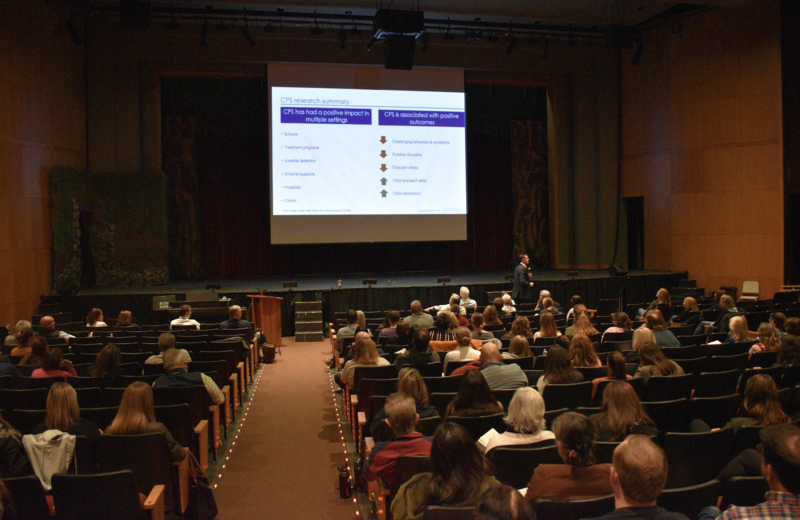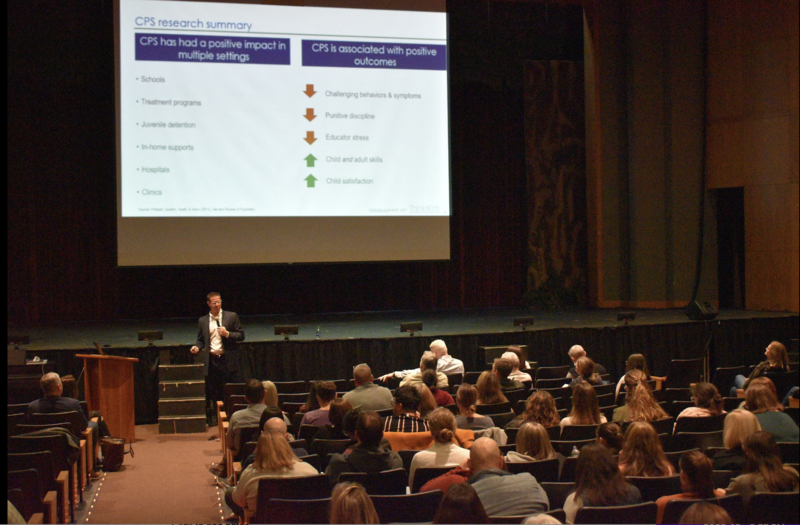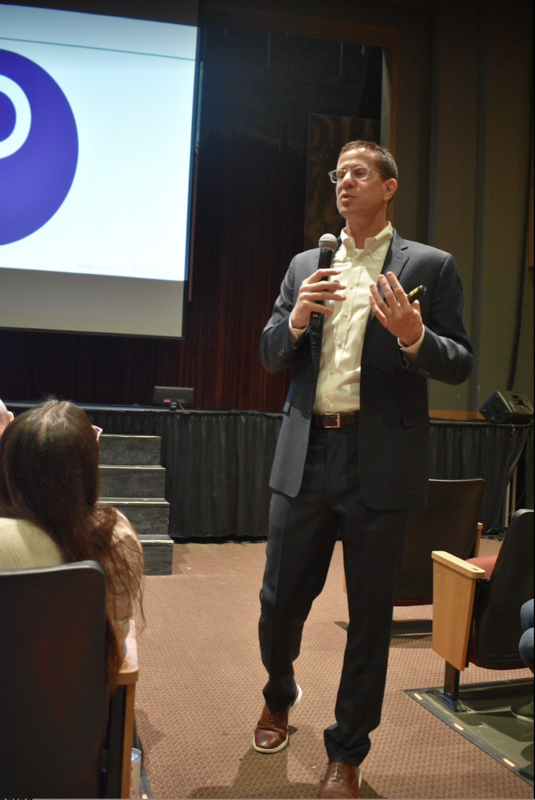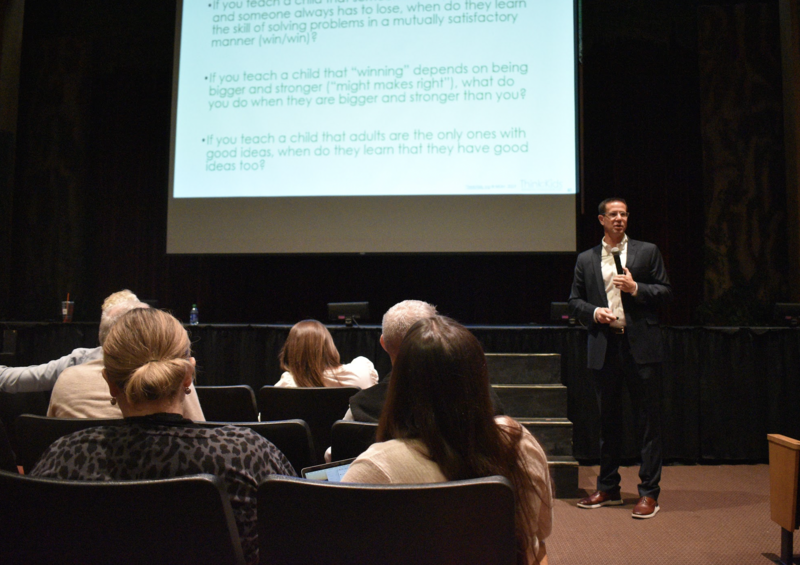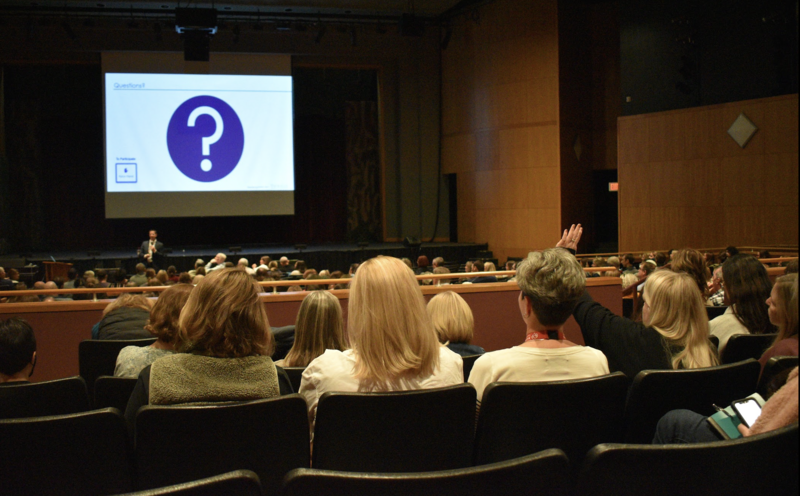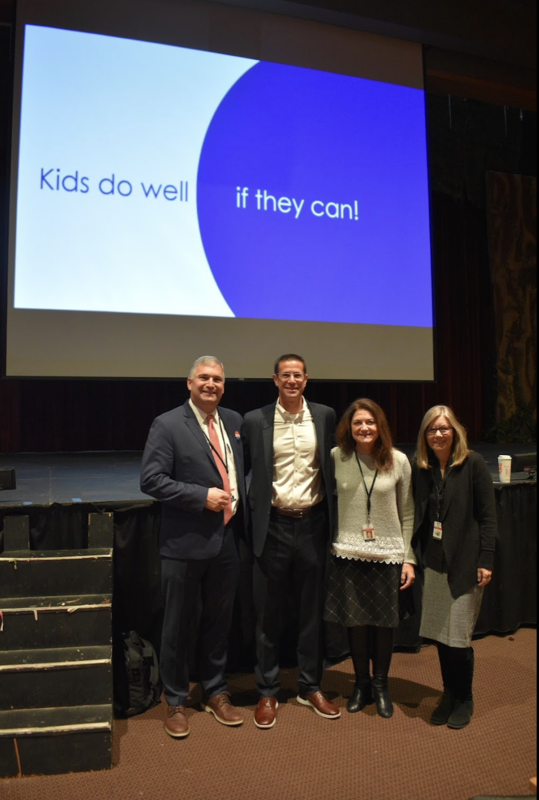On November 8, 2022, Dr. Stuart Ablon, Director of the "Think Kids" program at the Massachusetts General Hospital and Associate Professor at Harvard Medical School, spoke to faculty, school leaders, and parents about managing challenging behavior in children. These presentations were made possible, in part, by the generous contributions of the New Canaan Parent Teacher Councils, New Canaan Parent Faculty Association, New Canaan Community Foundation and New Canaan Cares.
In his presentation, Dr. Ablon explained that "Kids do Well if they Can" and challenged conventional wisdom that "Kids do Well if they Want To." Dr. Ablon cited decades of research that confirms that behavior is determined by skill, NOT will. In other words, when kids misbehave, it is not due to a lack of motivation to do well. Instead, kids lack the skills (such as emotion regulation skills, communication skills, and cognitive flexibility) to problem-solve and manage a challenging situation.
Dr. Ablon believes that in order to help students develop problem-solving skills that will lead to better behavior, we need to engage in "Collaborative Problem Solving." He explained there are only three ways to deal with challenging behavior; To impose the adult's will (Plan A), To solve the problem collaboratively (Plan B), or to drop the issue for now (Plan C).
Rather than using Plan A or Plan C, which do not teach the child any skills for problem-solving nor address both parties' concerns, Dr. Ablon suggests a 3 step model for having collaborative problem-solving conversations with kids. The first step is to empathize with the child and clarify the child's concern, often starting the conversation by saying: "I have noticed…". Only once the adult clearly understands the child's perspective should adults share their concern by saying something like: "And my concern is…" Finally, the adult can then brainstorm with the child to find a mutually satisfactory solution to solve the problem.
Dr. Ablon explained that by having collaborative conversations with our students and children, we demonstrate empathy - one of the most potent regulators of emotion. We are also helping them to develop essential skills for success, including perspective-taking, problem-solving, collaboration, and communication.
If you are interested in more information on the Collaborative Problem Solving approach, you can check out the ThinkKids website or one of Dr. Ablon's books, such as the School Discipline Fix (co-written with Alisha Pollastri) and Changeable. For a printable version of Dr. Ablon's presentation, click here.
